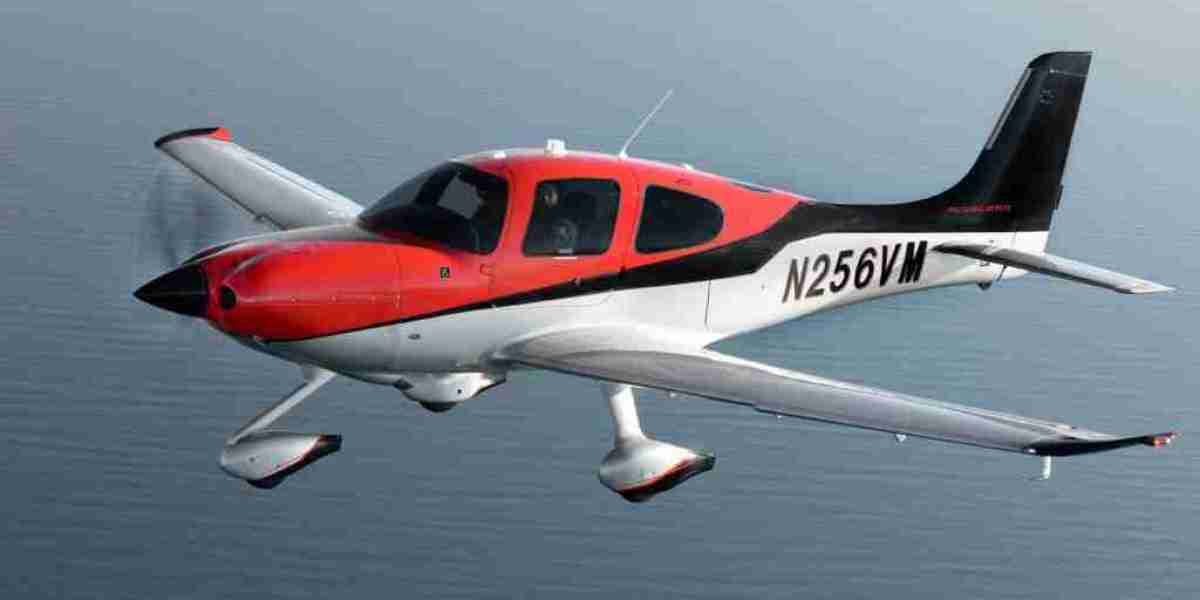Cirrus Instrument Rating makes pilots well-versed in advanced skills for flight control in tricky weather conditions, enabling them to be safer and more flexible. This rating is dedicated to developing highly-skilled techniques of flying precision, maneuvering in challenging conditions, and effective decision-making on the ground and in the air. A pilot may be alone in the cockpit. Thus, one needs to rely only on instruments for navigation, monitoring, and balance, and one can still be successful in track even when visibility is poor. With this certification, aviators can confidently operate Cirrus instrument rating in various weather scenarios, expanding their capabilities and ensuring efficient and secure flight operations.
How to learn cirrus instrument rating
Learning the Cirrus Instrument Rating involves several key components, which can be outlined as follows:
- Ground School: The course programme provides the principles of aviation and practical flying experience through in-depth theoretical training about IFR regulations, navigation systems, meteorology, and Cirrus aircraft systems.
- Flight Training: Practical knowledge and skills gained during one-on-one lessons with a Certified Flight Instructor (CFI) in a Cirrus airplane, performing instrument approaches, holds, intercepts, and similar maneuvers that must be accomplished while flying IFR.
- Instrument Procedures: We will spend sufficient time to get you acquainted with Cirrus aircraft approach procedures, both precision and non-precision approaches, as well as departure and arrival procedures.
- Avionics Familiarization: Conversing and being comfortable using the avionic suite of Cirrus Information System, whether that is Perspective or the Cirrus Perspective+ manufactured by Garmin, including the features such as the autopilot and the navigation aids.
- Emergency Procedures: One of the essential parts of the training is preparation for emergencies suitable to instrument flight, such as lost communication, partial panel flying, and managing aircraft system failures while in control of the aircraft.
- Simulator Training: Utilizing flight simulators to practice and reinforce instrument flying skills, including scenarios that simulate adverse weather conditions and emergencies.
- Regulatory Knowledge: Understanding and adhering to relevant aviation regulations and procedures, including instrument flight and Cirrus aircraft operations.
- Risk Management: Developing skills in decision-making and risk assessment, particularly in managing weather-related risks and other challenges encountered during instrument flight in Cirrus aircraft.
- Practical Test Preparation: Preparing for the practical test (checkride) with an FAA-designated examiner, which includes demonstrating proficiency in all required areas of instrument flying and Cirrus aircraft operation.
By systematically covering these areas through a combination of ground instruction, flight training, and practical experience, pilots can effectively learn and demonstrate proficiency in the Cirrus Instrument Rating.
Benefits of learning cirrus instrument rating
Learning the Cirrus Instrument Rating Chicago offers several benefits to pilots, including:
- Enhanced Safety: Increased proficiency in instrument flying techniques and procedures improves overall safety by enabling pilots to navigate confidently in adverse weather conditions, reducing the risk of accidents due to poor visibility or spatial disorientation.
- Versatility: The ability to fly under instrument flight rules (IFR) expands the range of conditions in which pilots can operate Cirrus aircraft, allowing for more flexible travel options and the ability to fly in varying weather conditions.
- Efficiency: Instrument-rated pilots can utilize more direct routes and take advantage of available airspace, resulting in more efficient flight planning and reduced travel times, especially in congested airspace or areas with adverse weather.
- Expanded Flight Options: With an instrument rating, pilots can fly in controlled airspace, access busy airports, and utilize instrument approach procedures, opening up a wider range of destinations and flight opportunities.
- Professional Development: Obtaining the Cirrus Instrument Rating demonstrates a commitment to professional development and mastery of advanced piloting skills, enhancing career prospects and opportunities for employment in commercial aviation or specialized aviation roles.
- Increased Confidence: Mastery of instrument flying techniques and procedures instills confidence in pilots, allowing them to tackle challenging situations with composure and competence, even in low visibility or high-stress scenarios.
- Aircraft Utilization: Instrument-rated pilots can make better use of their Cirrus aircraft by flying in a wider range of weather conditions, maximizing aircraft utilization and ensuring that weather-related delays are minimized.
FAQs of cirrus instrument rating
What is the Cirrus Instrument Rating?
Cirrus Instrument Rating Boston is an advanced pilot certification that enables aviators to fly Cirrus aircraft under instrument flight rules (IFR), allowing for navigation and flight in adverse weather conditions with low visibility.
Why should I pursue the Cirrus Instrument Rating?
Pursuing this rating enhances safety, expands your flying capabilities, and allows you to confidently navigate through challenging weather conditions, making you a more versatile and proficient pilot.
What are the prerequisites for obtaining the Cirrus Instrument Rating?
Typically, pilots must hold a Private Pilot Certificate or higher, have logged a specific amount of flight time, and meet other requirements outlined by aviation regulatory authorities.
How long does it take to complete the Cirrus Instrument Rating?
The duration varies depending on individual learning pace, availability for training, and proficiency level. Generally, it involves both ground instruction and flight training, with some pilots completing it in a few months.
Can I complete the Cirrus Instrument Rating online?
While there are online resources and courses available to supplement ground instruction, flight training for the Cirrus Instrument Rating typically requires hands-on experience with a Certified Flight Instructor (CFI).


